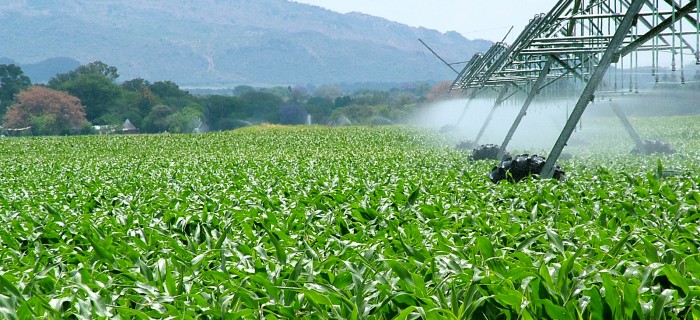When Renewable Isn’t Sustainable: Agrofuels and the 2007 Energy Independence and Security Act
March 2008, Policy Brief No. 13
The Fracturing of the Agrofuels Consensus Policymakers in the United States have turned up the heat on the agrofuels boom by setting ambitious targets for the nation’s Renewable Fuels Standards (RFS). In December 2007, the Energy Independence and Security Act passed the House and Senate, and was signed into law by President George W. Bush. The Act, legislated in the political glow of a strong bi-partisan consensus, mandates the use of 36 billion gallons of agrofuels annually by 2022—a five-fold increase over present levels.
Politicians, both red and blue, are still gushing over the new green alternative, insisting agrofuels are vital to national energy security, will curb global warming, and are the next step in the nation’s transition from peak oil to a renewable fuel economy. Closer analysis reveals that agrofuels provide few of these benefits. In fact, they are already exacerbating problems of hunger, poverty and ecological destruction. In this case, renewable does not mean “sustainable.” For this reason, even in the face of the industry’s breathtaking expansion, the social consensus on agrofuels is fracturing; locally, nationally and globally.
Behind the heroic corporate claims of energy independence and green energy, the agrofuels boom is violently transforming food and fuel systems in the Americas and elsewhere.
The fractures are reflected in the steadily eroding support for agrofuels among farmers, scientists, activists, nongovernmental organizations and many communities. They are also reflected in decreasing rates of investment and recent public relations efforts by the industry. Those still strongly in favor of agrofuels range from proindustry academics—flush with corporate research money—to hard-strapped mid-western corn farmers who are experiencing economic prosperity for the first time in decades. They are supported by a powerful phalanx of multi-billion dollar industries, venture capital investors and politicians, eager to implement the legislation that House Speaker Nancy Pelosi heralded as “a shot heard ‘round the world for energy independence.”
Opposition to agrofuels is coming largely from independent scientists, international food security experts, food sovereignty movements, conservationists, and, increasingly, from peri-urban communities that do not want ethanol plants in their backyards. But opposition is also growing among farmers, some oil companies, some environmentalists, and even a few politicians (albeit timidly), who are becoming increasingly uncomfortable with the industrial fuel crop model.
The fractured consensus has uncovered agrofuels’ “inconvenient truths,” revealing a hydra-headed industrial juggernaut driven by giant grain, genetic engineering, and petroleum companies actively speculating with food and fuel systems at taxpayers’ expense. Behind the heroic corporate claims of energy independence and green energy, the agrofuels boom is violently transforming food and fuel systems in the Americas and elsewhere.
This report, the first in an exhaustive series on Food and Fuel Sovereignty in the Americas, describes three aspects of agrofuels’ inconvenient truths: food shortages, energy dependence, and environmental damage. In the face of the fracturing agrofuels’ consensus, we propose a moratorium and a broad public dialog to build a context for sound food and fuel alternatives.
Stay in the loop with Food First!
Get our independent analysis, research, and other publications you care about to your inbox for free!
Sign up today!

 Help Food First to continue growing an informed, transformative, and flourishing food movement.
Help Food First to continue growing an informed, transformative, and flourishing food movement.




